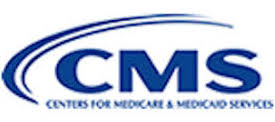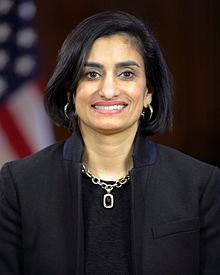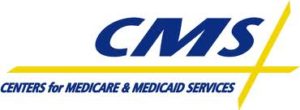PA Health Policy Update for November 15
The following is an update of selected state health policy developments in Pennsylvania November 4 – 15. (Some of the language used below is taken directly from state documents).
Centers for Medicare & Medicaid Services 
The Centers for Medicare & Medicaid Services (CMS) has announced that it approved an amendment to Pennsylvania’s section 1115 Medicaid demonstration waiver to provide continuous Medicaid eligibility for children until the age of six, and 12 months of continuous eligibility for individuals aged 19 through 64 leaving incarceration, who meet certain high-risk criteria. Find additional information about Pennsylvania’s section 1115 demonstration amendment approval here.
General Assembly
The state House of Representatives and Senate briefly convened for voting session this week to conclude legislative business for the 2023-2024 session and elect caucus leadership for the upcoming 2025-2026 legislative session. Following is the comprehensive list of each caucus’ leadership team.
- House of Representatives Democratic Caucus Leadership Team*
- House of Representatives Republican Caucus Leadership Team
- Senate Democratic Caucus Leadership Team
- Senate Republican Caucus Leadership Team*
* Denotes majority party.
Department of Human Services 
- The Office of Mental Health and Substance Abuse Services (OMHSAS) has announced it released an updated Psychiatric Outpatient Clinic Regulatory Compliance Guide (RCG). The changes made were primarily to language and updates based on comments received from stakeholders on the original document issued in 2021. OMHSAS has been working on developing RCGs for each licensed level of care. The RCG is designed to be a tool for providers, OMHSAS staff, and the public to better understand pertinent regulations. The guide is a companion piece to 55 Pa. Code Chapter 5200.
- The Department of Human Services (DHS) has issued an updated Pennsylvania Medicaid Managed Care Directory.
- DHS has issued a Medical Assistance Bulletin entitled Statewide Preferred Drug List (PDL) Updates – Pharmacy Services.
- DHS has issued several Medical Assistance bulletins with updated handbook pages that include the requirements for prior authorization for various pharmacy services. Following is a comprehensive list of prior authorization bulletins recently issued by DHS.
- Prior Authorization of Anticonvulsants – Pharmacy Services
- Prior Authorization of Antidepressants, Other – Pharmacy Services
- Prior Authorization of Antidepressants, SSRIs – Pharmacy Services
- Prior Authorization of Antifibrotic Respiratory Agents – Pharmacy Services
- Prior Authorization of Monoclonal Antibodies (MABs) – Anti-IL, Anti-IgE, Anti-TSLP – Pharmacy Services
- Prior Authorization of Antiparkinson’s Agents – Pharmacy Services
- Prior Authorization of Antipsychotics – Pharmacy Services
- Prior Authorization of Botulinum Toxins – Pharmacy Services
- Prior Authorization of Colony Stimulating Factors – Pharmacy Services
- Prior Authorization of Cytokine and CAM Antagonists – Pharmacy Services
- Prior Authorization of Hepatic and Biliary Agents (formerly Bile Salts) – Pharmacy Services
- Prior Authorization of Hereditary Angioedema (HAE) Agents – Pharmacy Services
- Prior Authorization of Immunomodulators, Atopic Dermatitis – Pharmacy Services
- Prior Authorization of Lipotropics, Other – Pharmacy Services
- Prior Authorization of Migraine Acute Treatment Agents – Pharmacy Services
- Prior Authorization of Migraine Prevention Agents – Pharmacy Services
- Prior Authorization of Multiple Sclerosis Agents – Pharmacy Services
- Prior Authorization of Natalizumab – Pharmacy Services
- Prior Authorization of Neuropathic Pain Agents – Pharmacy Services
- Prior Authorization of Oncology Agents, Oral – Pharmacy Services
- Prior Authorization of Pancreatic Enzymes – Pharmacy Services
- Prior Authorization of Phosphate Lowering Agents (Formerly Phosphate Binders) – Pharmacy Services
- Prior Authorization of Pulmonary Hypertension Agents, Oral and Inhaled – Pharmacy Services
- Prior Authorization of Skeletal Muscle Relaxants – Pharmacy Services
- Prior Authorization of Stimulants and Related Agents – Pharmacy Services
- Prior Authorization of Thalidomide and Derivatives – Pharmacy Services
- Prior Authorization of Thrombopoietics – Pharmacy Services
- Prior Authorization of Ulcerative Colitis Agents – Pharmacy Services
- Prior Authorization of Analgesics, Opioid Short-Acting – Pharmacy Services
- Prior Authorization of Analgesics, Opioid Long-Acting – Pharmacy Services
- Prior Authorization of Analgesics, Non-Opioid Barbiturate Combinations – Pharmacy Services
Department of Health
The Department of Health (DOH) has published notice of the Secretary of Health’s decision not to effectuate the recommendation of the Medical Marijuana Advisory Board that certified registered nurse practitioners (CRNPs) and podiatrists be eligible to apply for inclusion in the registry of practitioners who can certify patients for medical marijuana. Find the notice regarding CRNPs here and podiatrists here.
Insurance Department
The Pennsylvania Insurance Department (PID) has released a comprehensive study of the accuracy of health insurer provider directories. The report highlights persistent inaccuracies in health insurer provider directories that can delay care, hinder scheduling, or result in surprise out-of-network charges. PID is planning to initiate stakeholder outreach to gather input and develop solutions that reduce inaccuracies in provider directories. Find additional information in this press release.
Independent Fiscal Office
The Independent Fiscal Office (IFO) has released its Economic and Budget Outlooks for FYs 2024-2025 to 2029-2030. This annual fiscal outlook report, which includes projections of state revenues and expenditures, also considers economic and demographic trends that will impact tax revenues and expenditures over the next five fiscal years. Find the IFO’s presentation here and its full report here.
Office of Administration
The Office of Administration has recently announced the launch of a new resource page on PA.gov that makes it easier for residents, businesses, non-profits, and local government entities to find and apply to various grant programs from state agencies. Find additional information in this press release.
Around the State
- The Hill has published an article about Governor Shapiro’s national political prospects following the 2024 election.
- WHYY has written an article about this year’s open enrollment for health insurance coverage in 2025. The Pittsburgh Post-Gazette has also written about open enrollment and the potential for premiums to increase.
- An article published by the Patriot-News highlights the continued partisan split in Harrisburg for the upcoming 2025-2026 legislative session. The Pennsylvania Capital-Star also wrote about this dynamic but noted House Democrats’ hope for greater cooperation with the Republican Senate.
Stakeholder Events
DOH – Newborn Screening Advisory Committee – November 21
The Newborn Screening and Follow-Up Technical Advisory Board will hold a public meeting on Thursday, November 21 from 10:00 a.m. until 1:00 p.m. The meeting will be conducted both in person and as a virtual conference. Find additional information in this Pennsylvania Bulletin notice.
 According to the comment letter SNAP submitted to the Centers for Medicare & Medicaid Services,
According to the comment letter SNAP submitted to the Centers for Medicare & Medicaid Services, Initiatives to be introduced in the coming months include (as described in the blog post):
Initiatives to be introduced in the coming months include (as described in the blog post): According to the news release, those changes include:
According to the news release, those changes include:


